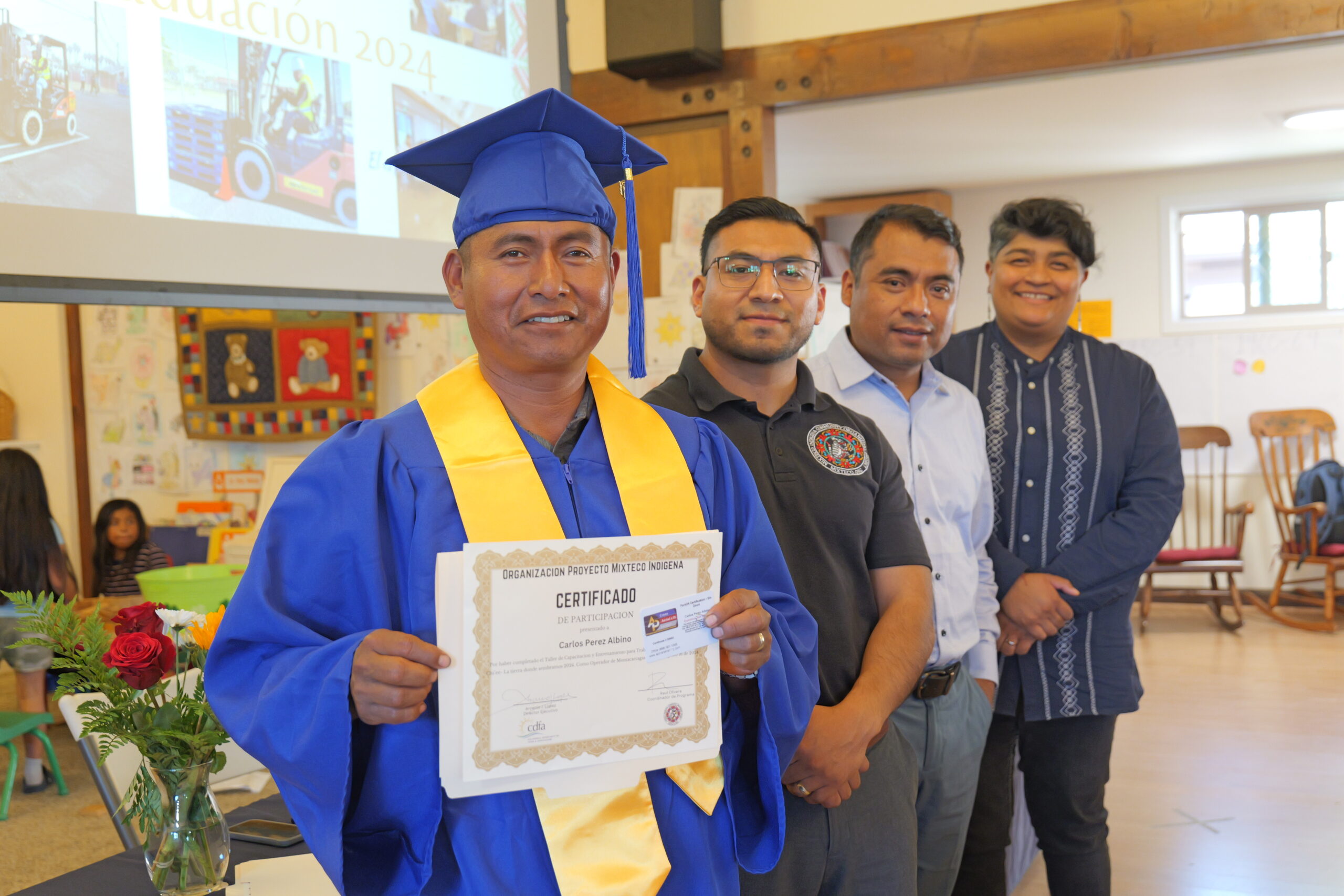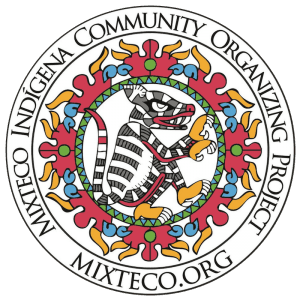MICOP’s Ñu Nuu Chiee program trains 39 members of the Indigenous community in forklift certification and private pesticide application.

(Listen to the audio in Spanish and Mixteco, variant from Guadalupe Nundaca 5 min)
The Ñu Nuu Chiee program, known as “the University of the People,” under the umbrella of the non-profit organization Mixteco Indigenous Community Organizing Project (MICOP), provided training to 39 members of the Santa Bárbara community. The training that the members of the Indigenous community received certified them in the ability to operate a forklift and now “they are ready to be part of the workforce in Santa Barbara County and proudly also in the rest of California”, said one community organizer of the program
On this occasion, 7 participants graduated as private pesticide applicators after 3 months of training and received a certificate issued by the Department of Pesticide Regulation of the state of California (DPR). The DPR mentioned how this certificate “allows participants to provide services in applying and handling pesticides in agricultural activities and can also provide training to agricultural workers who are exposed to the dangers that come with the use of pesticides.”
For the organizers of this program, the biggest challenge they had was “teaching, because training an older adult is not the same as a young person who is in the full swing of learning. Through an analysis based on the diagnosis of the participants, it was possible to propose a study plan according to the needs of the participants. Furthermore, most of the participants are agricultural workers, with multiple responsibilities in their daily lives.”
Emotions during the graduation of the Ñu Nuu Chiee program were very high, as several of the participants were very happy and grateful to have an opportunity to improve themselves and learn new things. Furthermore, this certification filled them with optimism as it could help them get a better job.
One participant specifically added how he has noticed other organizations that have offered similar training, but these trainings were not completely free and did not have the same patience and dedication that the Mixtec project had in training members of the Indigenous community. He concluded, adding how he never considered himself “good at studies,” but after being successful in graduating from this program, he felt a new confidence in himself to be able to fulfill his dreams.
In closing, the facilitators of the Ñu Nuu Chiee program mentioned that they “invite the Santa Barbara County community at large to participate in this training.”
In addition, they invited the community to approach MICOP as an organization, since it has multiple support programs for them and, in turn, to be aware of the upcoming workshops of the Ñu Nuu Chiee program.
